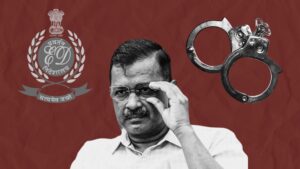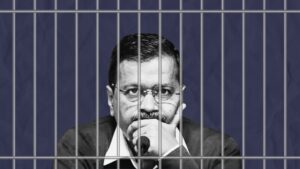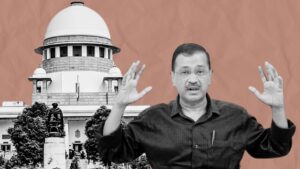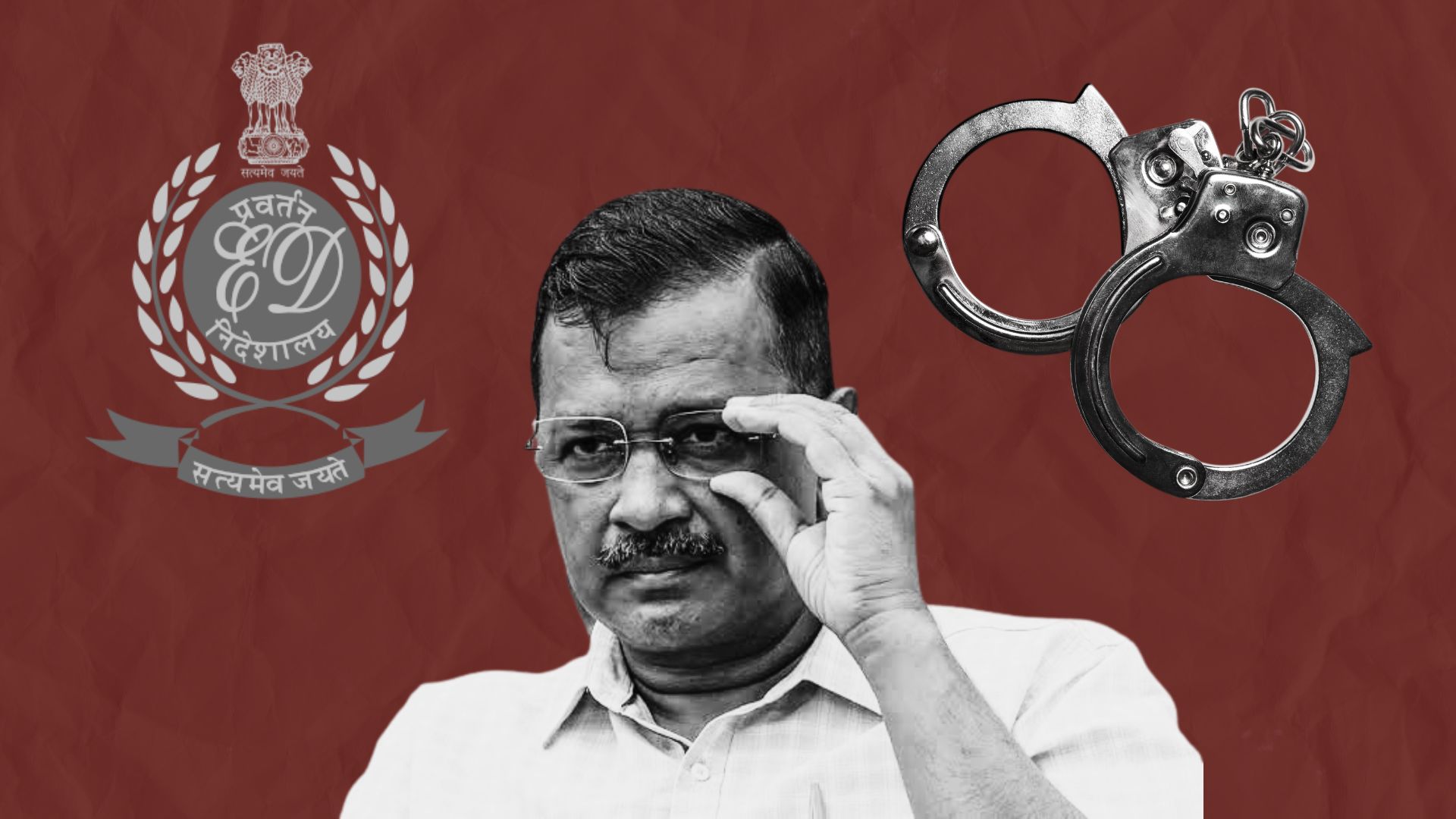The arrest of Delhi Chief Minister Arvind Kejriwal on the evening of March 21, 2024, by the Enforcement Directorate (ED) in connection with a money laundering case tied to the reverberations of the excise policy debacle have rippled through the political fabric of India, stirring up a tempest of uncertainty and controversy. This development, occurring amidst the backdrop of heightened political tensions and looming elections, has ignited a flurry of debates and speculations across the nation. To comprehend the full gravity of this event, it is essential to delve deeper into the historical contexts and intricate dynamics surrounding the key players involved.
Arvind Kejriwal: A Journey from Activism to Politics
Arvind Kejriwal’s trajectory from a civil servant to a prominent political figure is emblematic of his unwavering commitment to combatting corruption and championing transparency in governance. Following his role as a prominent anti-corruption activist during the India Against Corruption movement in 2011, Kejriwal emerged as a formidable force in Indian politics. In 2012, he founded the Aam Aadmi Party (AAP) with the vision of ushering in a new era of clean and accountable governance in Delhi.

As Chief Minister, Kejriwal’s tenure has been characterized by a series of populist measures aimed at addressing the pressing concerns of Delhi’s residents. His initiatives, ranging from improving education and healthcare services to advocating for environmental sustainability, have garnered both praise and criticism.
The Enforcement Directorate: Upholding Financial Integrity
Since its inception in 1956, the Enforcement Directorate (ED) has stood as the vanguard against economic malfeasance, wielding its authority to uphold the integrity of financial regulations and combat the scourge of financial crimes that threaten India’s economic stability. Operating under the aegis of the Ministry of Finance, the ED wields considerable authority in investigating cases of money laundering, foreign exchange violations, and other economic offenses. Over the years, the agency has earned a reputation for its rigorous investigative practices and high-profile prosecutions.
The Excise Policy Case: Unraveling Allegations
Central to Arvind Kejriwal’s arrest is his alleged involvement in a money laundering case linked to the implementation of the excise policy in Delhi. The excise policy pertains to the government’s regulations governing the production, distribution, and taxation of alcoholic beverages. The specific allegations against Kejriwal and the extent of his culpability remain subjects of intense scrutiny and conjecture.

Other Individuals Implicated in the Case:
In addition to Arvind Kejriwal, several other individuals have been implicated in the money laundering case tied to the excise policy. Among them are trusted aides and senior members of the Aam Aadmi Party (AAP), including Sanjay Singh, Manish Sisodia, and Satyendar Jain. Their arrests and alleged involvement in the case have further complicated the legal proceedings and cast a shadow over the party’s electoral prospects.
Reactions from AAP Leaders: Standing in Solidarity
In the aftermath of Kejriwal’s arrest, prominent AAP leaders, including Atishi and Saurabh Bharadwaj, have rallied behind their embattled chief, decrying the charges as politically motivated and orchestrated by the ruling Bharatiya Janata Party (BJP). They have reaffirmed their unwavering support for Kejriwal and vowed to continue the fight for justice and transparency. The party’s resilience and unity in the face of adversity underscore its commitment to upholding democratic principles.
Impact of Kejriwal’s Arrest on Delhi’s Governance:
With Arvind Kejriwal’s arrest leaving Delhi without a Chief Minister, the immediate impact on the governance and administration of the city-state is significant. The absence of a leader at the helm raises concerns about the continuity and effectiveness of government initiatives and services. Key policy decisions, administrative matters, and crisis management efforts may face delays or disruptions in the absence of a Chief Minister to provide direction and oversight. The vacuum created by Kejriwal’s absence underscores the importance of stability and leadership in ensuring the smooth functioning of the state machinery.

The Impact on AAP’s Electoral Prospects: Navigating Uncertain Waters
Kejriwal’s arrest comes at a critical juncture for the Aam Aadmi Party, as it prepares for the upcoming Lok Sabha elections in collaboration with its opposition bloc partner, the Indian National Congress. The absence of Kejriwal, coupled with the incarceration of other senior party members, poses a formidable challenge to AAP’s electoral aspirations and organizational coherence. The party must navigate this tumultuous period with tact and resilience to retain its relevance on the national stage.
The arrest of Delhi Chief Minister Arvind Kejriwal by the Enforcement Directorate has laid bare the intricate nexus between politics and legal entanglements in India. As the legal proceedings unfold and the political ramifications reverberate across the nation, it is imperative to maintain a vigilant eye on the evolving narrative. In a democracy fraught with complexities and contradictions, the pursuit of truth and justice remains paramount, lest the foundations of governance falter beneath the weight of vested interests and partisan agendas.
Top 50 Holi Wishes, Messages & Quote

